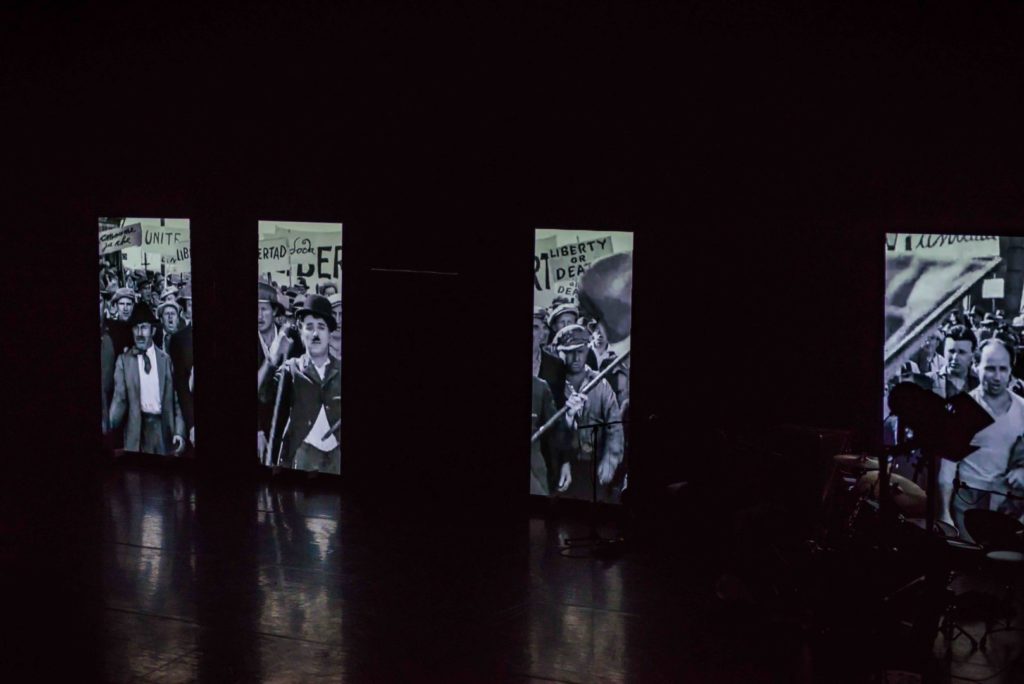Jessie Marino: Rot Blau for 2 performers (2009)
Simon Steen-Andersen: Study for String Instrument #1 for violin and cello
Natacha Diels: An Economy of Means for miniature drumset and electronics (2014)
Cathy van Eck: silver breath for 3 performers with aluminium foil, contact loudspeakers and live electronics (2018)
Commissioned by Inspiratum Wijnegem and Nadar Ensemble
Jennifer Walshe: 1984, it’s OK! for violin, cello, percussion and video (2015)



It must be a frustrating experience to be mistaken for a colleague, time after time. It happened to Jessie Marino (New York, °1984). More than once she was addressed as her good friend, flutist and composer Natacha Diels. In Rot Blau this case of mistaken identity is made the topic of a vibrant performance piece.
The Study for String Instrument #1, too, is a visual masterpiece. Danish Simon Steen-Andersen (°1976) leaves no doubt about it: this composition has to be equally interesting for a blind listener as it is for a deaf spectator.
Whereas percussionists often have to drag an immense array of instruments to the stage, the set-up Natacha Diels’ (Los Angeles, °1981) An Economy of Means barely exceeds the size limits for hand luggage. With nothing more than a miniature drum kit, his voice and a battery of electronic effects, the percussionist develops into an impressive one man band.
In 1984, it’s OK! by Jennifer Walshe (Dublin, °1974), the stage is dominated by a huge projection screen and a giant bass amplifier. Under the all-seeing eye of the camera, the musicians are required not only to play their instruments, but also run, jump and fight.
The program is completed by a piece by Dutch-Belgian composer Cathy van Eck (°1979), silver breath. She, too, presents the musicians as performers, trying to bring across their message with transducers and aluminum foil.
